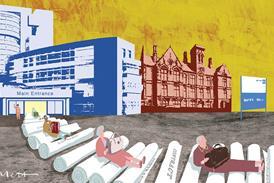Leading clinicians ‘horrified’ as NHSE slashes community funding without warning

Senior medics have reacted in horror to NHS England’s decision to ‘dramatically’ cut the funding of a key long-term plan commitment designed to improve older people’s community services and deliver more care at home.
You need to be a subscriber to read more

Subscribe for unlimited access
With a HSJ subscription you’ll unlock:
- All HSJ news by sector, topic & region
- Breaking News announcements
- App for mobile and offline reading
- Comment and Daily Insights newsletters
- Regional roundup newsletters
- Unrestricted access to ‘Ask HSJ’ - AI assistant - AI assistant
- 10 expert briefings every fortnight (Premium only)
Already a subscriber? Sign into your account here




















